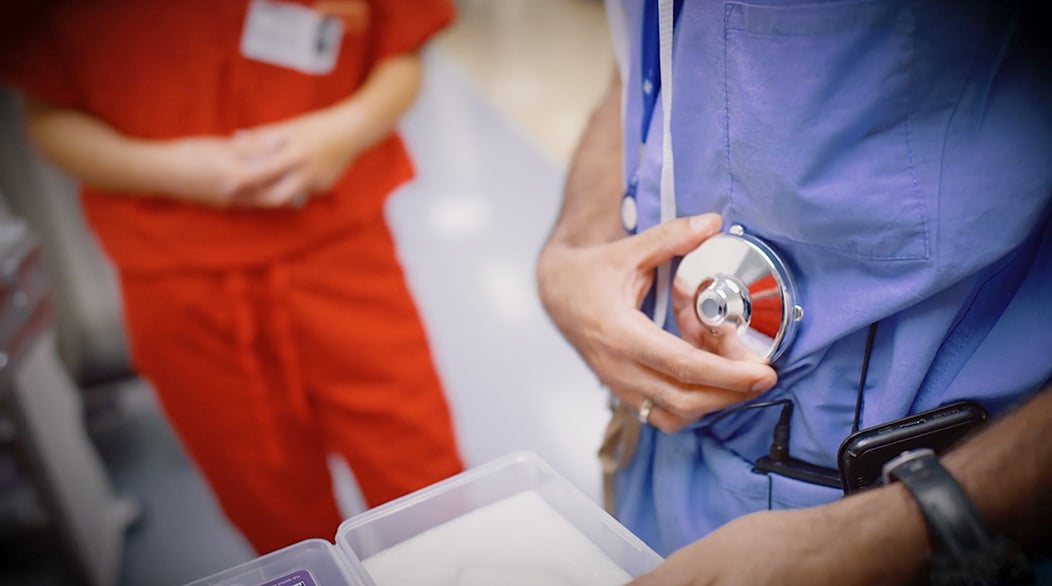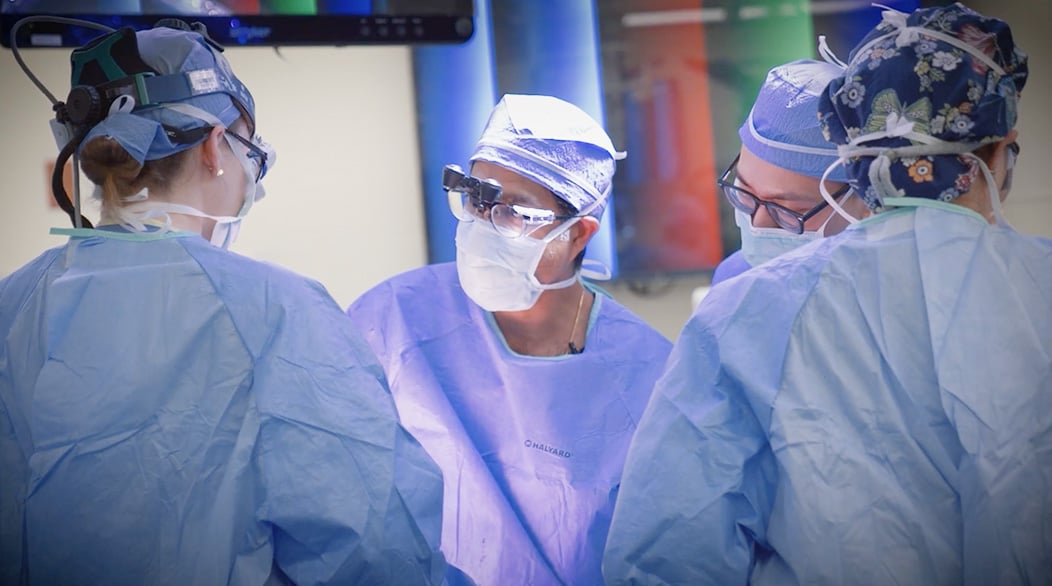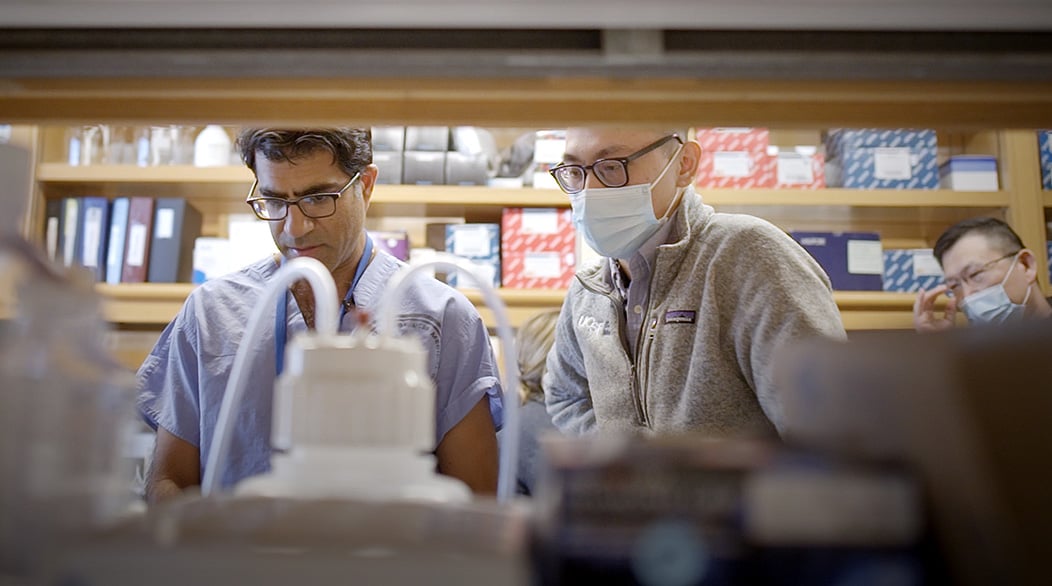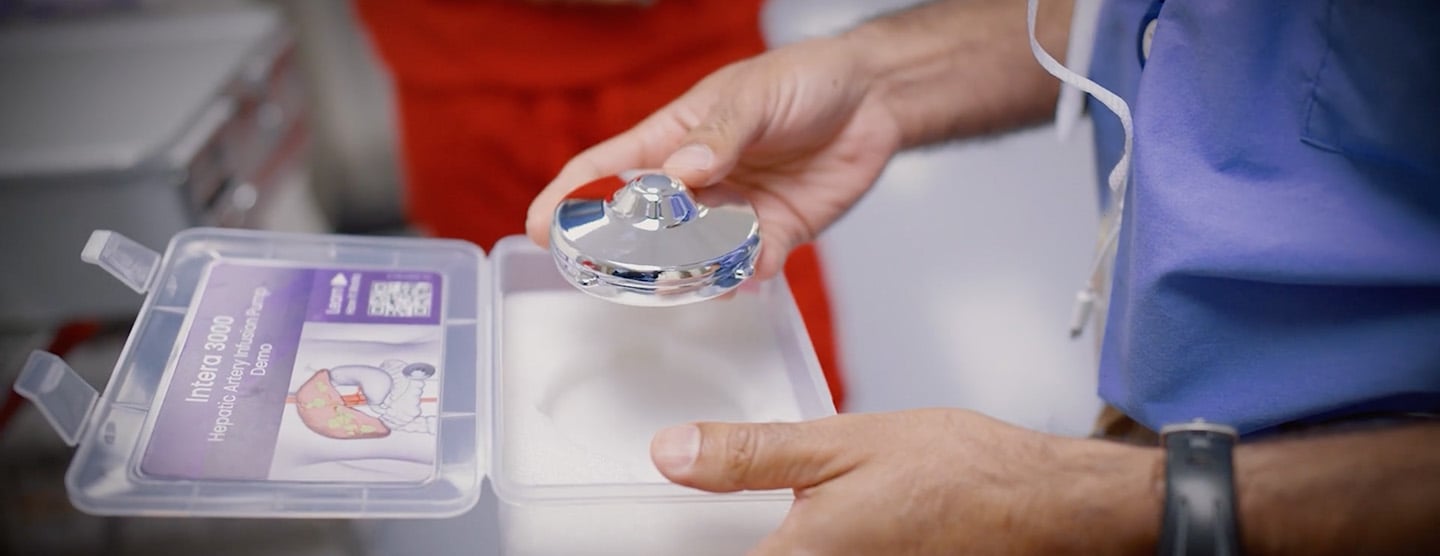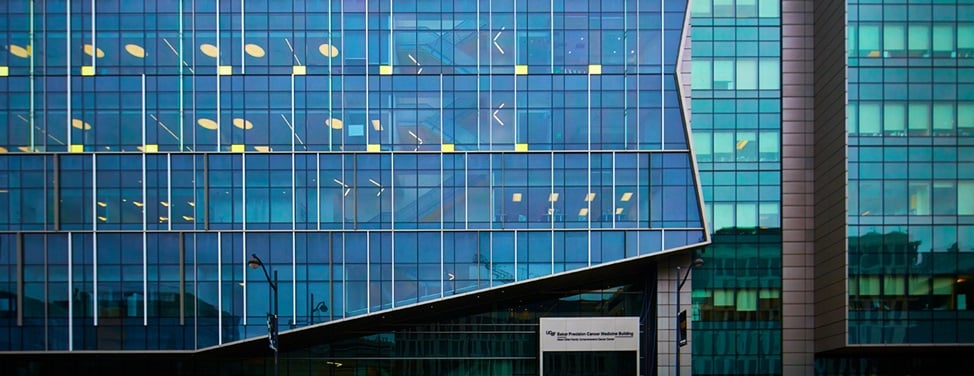About 3 inches in diameter, the disk resembles a shiny hockey puck when held in the palm of a hand. Before implanting this disease-fighting device in a patient, doctors fill its hollow titanium body with one ounce of liquid: a deadly cocktail for cancer cells invading the liver.
The disk is a hepatic arterial infusion (HAI) pump – a medical device that can be surgically placed in a patient's abdomen to continuously administer chemotherapy directly into the hepatic artery, which delivers blood to the liver. In other words, it fights cancer cells in the liver, where the cells are located, instead of the drugs traveling the 12,000 miles of blood vessels in an adult patient's body to reach their target, as with traditional chemotherapy.
"This treatment is a powerful option for patients with cancer that has spread to the liver from the colon and, when used with regular chemotherapy, it may help shrink the tumors and lower the chances of the cancer coming back," said Dr. Ajay Maker, chief of surgical oncology and surgeon-in-chief of the UCSF Helen Diller Family Comprehensive Cancer Center.
Only about 1% of medical centers in the U.S. offer the HAI pump as a treatment for cancer. UCSF is the sole hospital in the Bay Area, and one of just a few on the West Coast, to provide this targeted approach as an option for patients with inoperable colon cancer that has spread to the liver. Maker leads the hospital's surgical HAI pump program, which is one of the country's highest-volume HAI pump programs.
"This type of specialized care is only possible through a true team-based approach at UCSF that combines cutting-edge surgical teams with world-class medical oncology experts," he said.
Secondary liver cancer – cancer that has spread to the liver from other parts of the body, such as the colon – is the second leading cause of cancer-related death in the world. The surgery to implant the pump in the hepatic artery requires extensive training and expertise due to the liver's intricate network of blood vessels and bile ducts.







